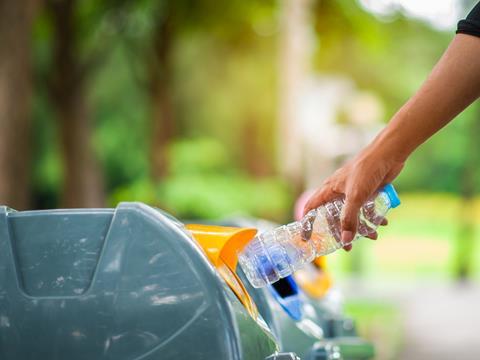
Is eco-jargon getting in the way of guiding consumers to new choices and behaviours? Julian Rolfe, co-founder of !mpatience, says that sustainability needs to be about leading people to urgent change, rather than companies aligning themselves with lofty causes.
Protecting the future by being more responsible with our choices today is now commonly understood as an urgent shared challenge. Acting in a more sustainable way is what businesses and individuals are being asked to do. That means rapidly changing our behaviours. But in the rush to change direction, are we all clear on what that direction is, and does the term ”being more sustainable” give us all enough clues as to how to get it right?
“Sustainability” is such a big word that it can induce a sort of yawning paralysis. The UN has 17 SDGs (Sustainability Development Goals), prompting The Economist to wryly note that ‘Moses brought 10 commandments down from Mount Sinai. If only the UN’s SDGs were as concise’.
Clearly, the UN has good intentions with the SDGs and, no doubt, brands talking about their sustainability goals and actions do too. But it is precisely this level of detailed classification and complexity that can have an adverse effect on the individual, putting them off from choosing responsibly packaged products because it is all too overwhelming and ‘what difference can I make, anyway?’
Individuals are keen to make responsible choices and choose products with responsible packaging that can be reused, recycled or repurposed. However, often they are held back by the terminology used on-pack or in communications – and one of the worst offenders is the over-use of the claim ‘more sustainable’.
The word ‘Sustainability’ has been so overused that it has become almost meaningless. It is just part of the eco-jargon that people are aware of but don’t fully understand.
Eco-jargon is getting in the way of guiding individuals to new choices and behaviours. In our research, we have found that individuals often muddle up ‘Recycled’ and ‘Recyclable’, as well as ‘Biodegradable’ and ‘Compostable’. These terms are the claims arising from a company saying that their packaging is ‘more sustainable’, but individuals struggle to identify what implications that packaging has for them. It just leaves them with more questions than answers. What is my role in this? How do I dispose of something that is ‘Biodegradable’?
Often the answer to these questions is not the same in every market due to different waste infrastructures, adding yet another layer of confusion.
In most markets, people find disposal of paper/cardboard packaging relatively straightforward as there are often dedicated bins for it. But expecting individuals to know their HDPEs from their LDPEs is a futile task that usually results in a confused individual shoving it in one bin or the other and hoping for the best. Sometimes they even vary which bin they put a particular pack type in, reasoning that they will at least get it right some of the time.
What individuals need is for sustainability ambitions to be translated into clear direction and that means instructions on which type of bin to put your pack in. The more visual you can make the instructions, the better. In pack testing, we have found that showing correct bin disposal in green with a tick or smiley face, and incorrect bin disposal in red with a cross or frowning face has a significant uptick on correct pack disposal.
And if you can support the instructions on-pack in your communications, then all the better.
People are looking for easy behaviour changes to help the planet become more sustainable. We can all share in that goal but what will make the difference is if we all get a bit more practical. In all honesty, from what they tell us, individuals are unlikely to make changes that require lots of thought or effort. Brands need to guide them more explicitly on what changes to make rather than use big, generic terms for people to decipher. Let’s make it easy for them with clear direction on how to dispose of new pack materials so that we can all play our role in helping solve the planet’s sustainability challenge.
This article was written by Julian Rolfe, co-founder of !mpatience, a marketing strategy partner for brands who are impatient to face the challenges of sustainability. For more information on this, click here.














No comments yet